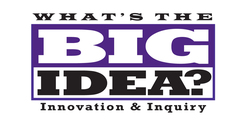
The process for identifying TCU’s QEP has been one that has engaged faculty, staff, and students.
In the Spring of 2011, several broad concepts were sifted from TCU’s Strategic Planning Process. Two Town Hall meetings were held in March and these areas were discussed. Following the town hall meetings, a survey was sent to all faculty and staff. Based on the 531 responses and discussions with members of the TCU community, the focus on the QEP was narrowed to "Innovation and Inquiry." This theme is supported by the following areas of focus.
• Applied Learning
• Creativity
• Integrated Learning
• Reflective Learning and Practices
Faculty and staff were encouraged to submit “big ideas” in paragraph form and these were shared on the www.sacs.tcu.edu website. A preliminary “call for proposals” was announced and ten preliminary proposals were submitted. From these ten, four main areas were chosen to move forward and submit a final proposal. These four are:
1. Creativity across Disciplines and Cultures: Inquiry, Innovation, and Entrepreneurship (I2E)
As educators, one of our greatest responsibilities is preparing students for the future. But how do we do that when we ourselves are unsure of what the future holds? Recent history suggests that our students’ futures will be marked by complexity, uncertainty, rapid change, population growth, regional conflict, environmental challenge, and the forces of globalization. Against this backdrop, what capabilities must our students possess in order to recognize and address unanticipated problems and capitalize on unforeseen opportunities? Our conceptual approach is to enhance the creative capacity of our students to address future challenges through interdisciplinary and cross-cultural collaborative learning emphasizing inquiry, innovation, and entrepreneurship. To operationalize this concept, we propose the creation of an Institute for Inquiry, Innovation, and Entrepreneurship (I2E). I2E would serve as a resource for creative and interdisciplinary activities, assist faculty in developing curricula and pedagogy to achieve the aforementioned outcomes (i.e. capacities for creativity, inquiry, innovation, and entrepreneurship), and facilitate collaborative learning opportunities with private and public organizations. In its objectives and content, therefore, our proposal addresses the applied learning, creativity, and integrated learning emphasis areas.
2. Disciplina est Facultas: The Transforming Power of Inquiry, Global Integrated Learning, and Innovation
This QEP stems from a reliance on TCU’s traditional Latin motto “Disciplina est facultas,” generally translated as “Knowledge is power.” The proposal seeks to facilitate and support a deeper level of knowing through integrated learning and teaching, and ultimately support innovative work by students, faculty, and staff. While retaining the university’s traditional emphasis on disciplinary knowledge, we strive to approach the concept from a more holistic perspective. Our goal is to create a series of opportunities for meshing the disciplinary with the interdisciplinary, the curricular with the co-curricular, the individual point of view with a global outlook. The American Association of Colleges and Universities provides our working definition of integrated learning:
Integrated learning: “An understanding and a disposition that a student builds across the curriculum and co-curriculum, from making simple connections among ideas and experiences to synthesizing and transferring learning to new, complex situations within and beyond the campus.”
3. Education Across Borders: Engaging TCU with the World
TCU students cannot succeed in a world they have not broadly experienced nor can they lead across borders without meaningful, sustained experience of other cultures. This is the strength of the TCU mission “to educate individuals . . . in the global community”. This proposal will further broaden and sustain international education for TCU students by promising each student coming to TCU, regardless of his/her major, they will graduate with a transformative international experience. This QEP will create international learning modules to revolutionize TCU, remove silos that inhibit engaging academic opportunities, and put in place more effective resources. Specifically, we propose three learning modules that foster applied and reflective learning: Global Citizenship through the Global Partners and Visiting Scholars Programs, TCU Global Academy (an interdisciplinary approach to study abroad), and the TCU International Commons designed to embed global thinking into the heart of TCU culture.
4. Transforming Campus and Community through Community Engaged Scholarship
TCU's mission statement is "to educate individuals to think and act as ethical leaders and responsible citizens in the global community." A Quality Enhancement Plan that focuses on community engaged scholarship and learning will position TCU to live out its mission by offering every student the opportunity to be exposed to at least one meaningfully experience with community-based learning and/or research before graduation. Students will engage with community at local, national and/or global levels.
By building and sustaining community engagement through university-wide curricular and co-curricular programs, TCU will better engage students as active citizens and foster inquisitive learning and innovative application of knowledge in real-life settings. Community Engaged Scholarship is an integrative learning model that provides opportunities for campus-community collaboration and combines key pedagogical components for fostering student learning outcomes in Applied Learning, Creativity, Integrated Learning, and Reflective Learning/Practice.
Final proposals are due May 1st! You can keep up with what is happening as TCU prepares for our SACS visit and the creation of our QEP by going to www.sacs.tcu.edu. And, you can always contact Ed McNertney (e.mcnertney@tcu.edu) or Catherine Wehlburg (c.wehlburg@tcu.edu) for more information.
